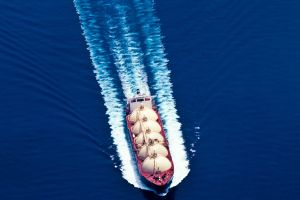
Why is New Zealand called "God's Favored Country"? How can it achieve wealth and development through sheep and cattle farming?
New Zealand, located in the southwestern Pacific Ocean between 34 degrees south and 47 degrees south latitude, and 62 degrees east and 174 degrees east longitude, is an island country surrounded by the ocean.
Its land area is approximately 268,000 square kilometers, similar in size to China's Guangxi Zhuang Autonomous Region. As of 2018, New Zealand's total population is about 4,885,500, with a GDP of around 205.02 billion U.S. dollars and a per capita GDP of approximately 42,000 U.S. dollars, making it a highly developed country.
Geographically, New Zealand is characterized by its long north-south stretch and short east-west span. The majority of its terrain is mountainous and hilly, with 75% of the country consisting of such landscapes.
These geographical features have provided favorable conditions for New Zealand's agriculture and livestock industry. Moreover, the country is abundant in mineral and biological resources. It boasts mineral resources such as coal, gold, iron ore, natural gas, and oil, including 30 million tons of oil and 170 billion cubic meters of natural gas.
Known as the "Green Kingdom," New Zealand's path to becoming a developed country can be attributed to various factors. From an economic perspective, the three elements of economic growth - land, capital, and labor - are all present in New Zealand.
While the sheep in New Zealand are not native, having been introduced by colonists in the 1840s, they have thrived due to the country's unique natural conditions. The ample pasture, hot and rainy climate, abundant light, dense river systems, and fertile soil have created excellent conditions for plant growth.
With year-round pasture growth and vast land resources, New Zealand has become a haven for cattle, sheep, and horses. Unlike other developed nations that rely heavily on industry, New Zealand's economy is centered around animal husbandry.
The country earns significant revenue through agricultural product exports. Although New Zealand is transitioning towards a diversified industrial economy, its agricultural and livestock sector remains crucial.
Agricultural and livestock exports account for half of New Zealand's total exports. The country is the world's third-largest wool exporter, accounting for 25% of global production. New Zealand ranks first in the world for lamb and dairy product exports. As a mountainous nation, most of its land is utilized for grazing, resulting in limited arable land and a significant reliance on food imports.
Moreover, New Zealand is an immigrant nation, and its population is sustained by immigration. It is the only country in the world that offers a permanent residence visa. This visa grants individuals the freedom to leave and return to New Zealand at their convenience and allows for easy switching of citizenship between countries.
Permanent residents also enjoy the majority of benefits and allowances granted to local residents. This permanent visa policy has attracted immigrants worldwide, as it offers long-term security and stability.
Through its favorable environment, developed livestock industry, and immigration policies, New Zealand has become an aspirational destination and a developed country. Its reliance on a smaller population, pristine environment, and thriving agricultural sector has contributed to its success and earned it the nickname "God's Favored Country."


